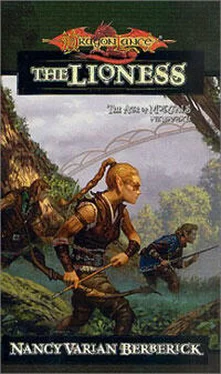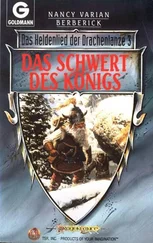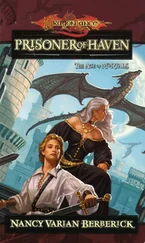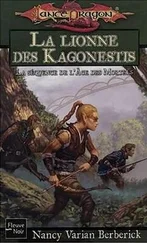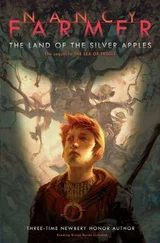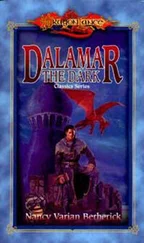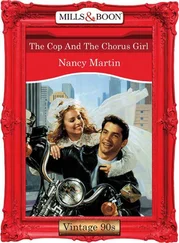Kerian gauged the threat, and she gauged the dwarf. She reckoned back along the months and seasons, back along events to the time she first saw him. She believed she knew who he was, this trader, this barman, and she slipped the emerald talisman from her shirt, the unfurling leaf he might well have seen Nayla or Haugh wear.
He had. She saw that in the sudden glint of his eyes, the way his head lifted.
“Tell me now, what are you doing here?”
Kerian’s voice dropped low, soft for only the two of them to hear. “My king has sent me.”
Stanach raised an eyebrow, then lifted the water jug in silent question. This, or better? When she nodded to her mug, he filled it again.
“I’m here to see your king.” She slid him a sideways glance. “I’m hoping his ambassador will help me to an audience.”
“I’m not his ambassador, girl.” He shook his head. “I’m not anyone’s anything. I did my thane a favor, that one who sits on the Council. I was in the Outland, a long time ago when your king’s mother commanded dragonarmies.” His eyes softened with remembered pain, the fingers of his ruined hand twitched on the bar rag. “Ah, a while ago. I know the ways of Outlanders, some. The thane, he said our king needed a man like that to go out to Qualinost to speak with the elves. No more than that, and I’m glad to be done with it.” He wiped the bar, pushing the rag around with his useless hand. Softly he said, “It’s no good thing to be gone from here. It’s no good thing to leave.”
The tavern rang with the clattering of plates and cutlery, the voices of hungry dwarves, those who’d been at the bar, new customers coming in. Kerian leaned across the bar.
“Will you take me to the king, to Tarn Bellowgranite?”
“D’ye think I can just go knocking on his door, girl? Do you think—”
“I think you are a man who can do pretty much whatever needs doing. Can you do this, Stanach Hammerfell?”
After a moment more of bar wiping, the dwarf said he supposed he could.
Kerian waited, uncertain whether to go into the council chamber or to wait for an escort. Stanach was gone, slipped away through the gardens outside the great shining brass doors to the chamber. Those doors stood ajar now, not swung wide but not tight shut. From within came the rumble of deep dwarven voices. They sounded like distant thunder, a storm roaming a far mountaintop. Then, sharply, one rose in striking challenge. The thanes of the clans didn’t seem minded to let their deliberations end easily. From her stance outside the door, she saw only a great cavernous hall beyond and had a sense of high ceilings and wide walls. Lights gleamed redly, in silver cressets torches flared, and tripod braziers stood at regular intervals. By their reaching light, Kerian saw thick marble columns marching upon each side of the hall, creating a broad aisle of bright marble leading to a dais.
Behind her, the city shone, a brightness of light. Thorbardin had sustained great damage during the wrenching civil war, but in this part of the city, high in the magnificent Life Tree of the Hylar, all seemed rebuilt and wondrous. Light poured in from the distant outer world, sliding into the city upon shafts of crystal. The gardens outside the Court of Thanes grew as richly as though they lay in an elven glade, but here, Kerian saw, gardens had only the seasons their gardeners wished them to have, for here light, temperature, and water were strictly under dwarven control. The crocus of winter grew happily beside the red rose of summer, and spring’s yellow jonquil nodded at the foot of a tall wisteria.
Kerian found it strangely unsettling, this confusion of seasons. She couldn’t imagine how they marked the passing of time beneath the mountain where the moon didn’t shine and the sun didn’t rise.
As she watched, the people of the vast underground city went forth and back, men, women, and scampering children about the business of their day. One child stopped, tugging at her mother’s skirts and pointing.
“Mam!” she cried, brown eyes wide above plump ruddy cheeks. “Look at that, look! An elf at the door!”
The dwarf woman hastily shushed the child. She turned her quickly away but not before others passing by noted and murmured at the sight. An elf at the door to the Court of Thanes!
“No good coming of that,” an elderly man muttered.
“Nothing but trouble, them elves,” the gray dame beside him sniffed. “Look at her, dressed like a robber, all dusty and rough. Coming around looking for something. They always are, them elves.”
Feeling like a beggar at the gate and keen enough to be amused by that, Kerian slipped inside the gleaming brass doors. Stepping into safer shadow, wryly she thought, now that’s better. Thorbardin’s day can progress undisturbed by the sight of me.
With those few steps, Kerian had walked from one world to another. Outside the doors, the world of dwarven life went on as it would in any city. Inside the doors, veiled in their shadows and separate from the murmuring thanes who did not see her, Kerian felt a seeping of homesickness for Qualinost. She once had a place there. She had been a servant in a senator’s house, a laughing girl with time for the taverns, songs, and dancing. The song of the city beyond the doors was like a sigh from that past time, and suddenly she was lonely. They loved their city, the dwarves of Thorbardin. They loved it as the sustainer, the giver of air, of water, of food. They loved it as an elf loves her forest.
Quiet in shadow, straining to hear what she might catch, what drift of deliberation she could, Kerian stood very still. The dwarves argued as though they had been at it all night, some thanes speaking strongly against the elf king’s proposal, others advising caution.
“Which doesn’t mean shouting no, Dorrin,” said a dwarf with an accent out of the south of the kingdom. “It just means you listen and think.” Someone else laughed, a rich rolling sound, and the rumbling of discussion resumed.
They are divided, Kerian thought. They were divided into three camps: those who would not consider even the least part of Gil’s request, those who thought they would be fools to ignore it, and those who wanted more time to listen and think. At the moment, as she counted, there were more in the last camp than in the other two. This, she thought, boded well—or at least, not ill.
From her concealment, she looked around the council chamber in the Court of Thanes. She stood beneath a high ceiling of marble, surrounded by walls of marble, her feet upon a cold marble floor. The place was a wonder of stonecraft, and the marble itself flowed like a tapestry, rose-veined, and gray-streaked, black upon the floor, snowy white stairs marching up to the dais where sat the high seats of all the thanes and the throne of the High King.
Into this hall over time had come men and women of all races, elves, dwarves, and humans, in friendship and in war, as supplicants and dispensers of favors. Kerian’s heart thrilled. During the War of the Lance, Gil’s own father, storied Tanis Half-Elven himself had come here in company with the Plainswoman Goldmoon who had carried for Krynn the blessing of a goddess, holy Mishakal. Looking like beggars, Tanis and Goldmoon had stood as heroes and pricked the conscience of a dwarven council whose dearest wish was to close the gates of Thorbardin and let all the world die of dragons if that’s what would be.
A Hylar thane had ruled in those days, not a king but a steward, faithful and waiting for a sign that a king would return to the dwarves. Kerian remember the history of her lover’s family, and she wondered whether the surly Hylar dwarf at the Hare and Hound, he who now presided over a bar in Stanach’s Curse, had known that troubled steward.
Читать дальше
